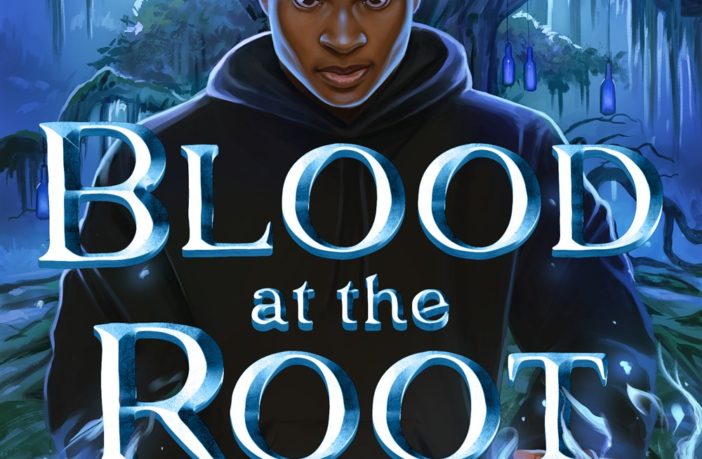Alabama born and raised author, screenwriter, director, and playwright LaDarrion Williams has given new meaning to the phrase carpe diem. Williams, who recently spoke to the AmNews in advance of his May 13 appearance at the 92nd Street Y (92NY), shared that he left his Alabama small town on a whim to strike out in pursuit of his lifelong dreams. “I was working at Taco Bell, depressed, and just wanted to get away. One night, my paycheck hit my direct deposit and I bought a $181 Southwest ticket. I’d never been on a plane before. It was a one-way ticket. I clicked to buy the ticket and I was like, ‘I guess I’m moving to LA!’”
Williams is promoting his soon-to-be-released YA Fantasy novel “Blood at the Root,” a book that appears to fulfill the dashed promises of the once highly anticipated film “The American Society of Magical Negroes (ASMN).” That story wasn’t about a Black Hogwarts as many assumed, but “Blood at the Root” in many ways, is. It chronicles the life of 17 year-old Malik as he tries to forget a traumatic past and begin a new life along with his younger foster brother. His journey brings him to a university, an HBCU in fact, that houses a community of people who, like him, harbor magical powers.
Williams recalls the flurry of activity among his peers when “ASMN” was initially announced. “That morning when I woke up my phone kept going off and there were all these texts and messages saying congratulations on the movie on Instagram and Tik Tok and what not. I was like, ‘Lord did they make my movie and not tell me? Or pay me?’” Williams was relieved, to say the least, when he realized “ASMN” was about something much different. “I was like, y’all, this ain’t my movie. This is not my story!”
Though Williams respects those involved with “ASMN,” the narrative isn’t something he is completely comfortable with, to the point that he decided not to see the film. “I’m at a point in my artistry where I want to consume something that’s going to uplift us though I’m not saying that story’s not uplifting for someone. But I can’t in my good conscience as a Black man and as a Black Fantasy writer who is out here fighting for my stories, go watch a movie where a Black character is only using his magic to help white people.”
Crushed hopes for the film were laid bare across social media after the trailer came out, the comments revealing, in no uncertain terms, the deep disappointment of many fantasy genre fans. “Black people are wanting to see us in a fantasy genre, because we have been excluded for years in the fantasy genre. Or we were only there as the sacrificial lamb. And so what people are really wanting and needing and what Hollywood and publishing needs to start realizing is that we want our own fantasy stories. We want our own Black magical stories.”
Williams’ plan for the story was originally as a film. In fact, the book was adapted from that now viral short film. “Blood at the Root wasn’t supposed to be a book. It was supposed to be a TV show. I wrote and I created a short film and the TV pilot. The reason I turned it into a book is because I had to pivot. Hollywood kept slamming their doors in my face.” His posts on X and TikTok have had tremendous engagement, including with popular existing trends like #BlackatHogwarts and #HBCUHogwarts.
TV’s “Lovecraft Country” and music—Beyoncé’s music specifically—inspired Williams to write “Blood at the Root.” The song that propelled him was “Find Your Way Back,” the South African House Music influenced track from “The Lion King: The Gift” album literally about reclaiming what one has lost. “It really sparked something for me,” Williams recalled. “Beyoncé created this beautiful story about a Black boy going from the Motherland all the way to here and the ancestry of it and I was like, I want to write that. That is going to be my mission.”
“Find Your Way Back” was also intensely personal for Williams. “I don’t know what that lady put in that song, but it really, it sparked something for me. It made me come to terms with not only myself but my childhood. My relationship with my father, my relationship with my mother, and my relationship with my hometown. We always talk about the inner child, but we never talk about the inner teenager because my teenage years were rough.”
Hippolyta’s (played by Aunjanue Ellis) mystical, galactic arc and the recreation of the events of the Tulsa Massacre as rendered in “Lovecraft Country” also catalyzed Williams’ writing of “Blood at the Root.” “She said I am—I am Hippolyta. I am.” Those are powerful words.”
Williams’ work contains some of the best examples of ways that popular entertainment can be lovingly referential, affirming, and uplifting. States Williams, “Those elements I took from “Lovecraft Country” and “Find Your Way Back” were like, yes, Blackness is magic. It’s Royal. It’s beautiful. It’s so badass! Beyoncé, thank you. Misha Green, the creator of “Lovecraft Country, Thank you.”
For more info, visit
https://www.penguinrandomhouse.com/books/738959/blood-at-the-root-by-ladarrion-williams
Like this:
Like Loading…



